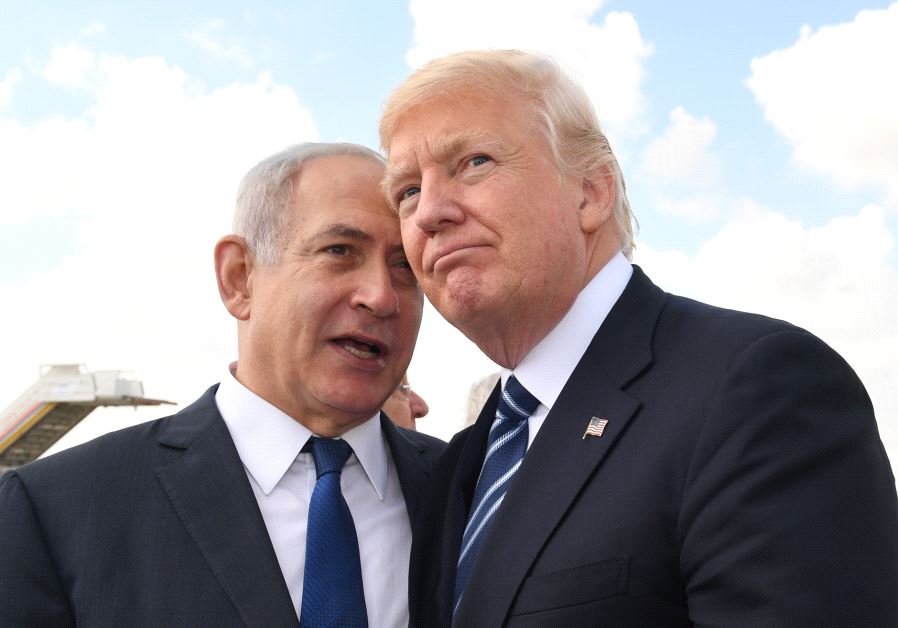As a week remains for Trump decision on Iran, Netanyahu's uncharacteristic silence echoes
Netanyahu’s advisers cite ‘Fix it or nix it’ speech at the UN but the PM still has no comment.
 Prime Minister Benjamin Netanyahu and US President Donald Trump at Ben Gurion airport on May 23, 2017(photo credit: KOBI GIDEON/GPO)
Prime Minister Benjamin Netanyahu and US President Donald Trump at Ben Gurion airport on May 23, 2017(photo credit: KOBI GIDEON/GPO)